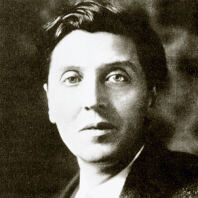Alban Berg
Compositeur
Alban Berg’s composition lessons with Arnold Schoenberg were to shape his artistic career: in 1906, despite his mother’s objections, he gave up his position as a civil servant to devote himself entirely to music – with works that, for all their modernity, are audibly linked to tradition. With their immediate expressiveness, they reached a large audience from the mid-1920s onwards.
Alban was not even considered the most musical of the four children in the well-off family of the Viennese art dealer Conrad Berg: his younger sister Smaragda was far superior to him in piano playing. And even as a singer, the third-born could not compare with the beautiful voice of his older brother Charly. Nevertheless, Alban enthusiastically played together with his sister on the piano and never tired of listening to her and Charly perform songs. At the age of 14, he began to write songs for the two of them himself. Within the next five years, Berg wrote no fewer than 140 settings without ever having received any theory lessons. He also showed a marked interest in literature – he later remarked to Anton Webern that he had actually wanted to become a poet. In 1904, Berg became a private pupil of Schoenberg, with whom he remained closely associated throughout his life. The attempt to perform his Altenberg Lieder in Vienna in 1913 led to one of the most memorable scandals of New Music – due to a riot in the audience, the concert had to be abandoned. Berg made the decision to compose an opera based on Büchner’s Woyzeck as early as 1914, working on the project until 1922. Following the success of his String Quartet op. 3, the triumphant premiere of his Wozzeck at the Staatsoper in Berlin in December 1925 resulted in Berg’s international breakthrough. In 1928, he began work on the opera Lulu. While he was still writing the opera, he composed his violin concerto “To the Memory of an Angel”. Berg died of sepsis on the night of 23–24 December 1935. Lulu remained unfinished and was completed by Friedrich Cerha from the reduced score.